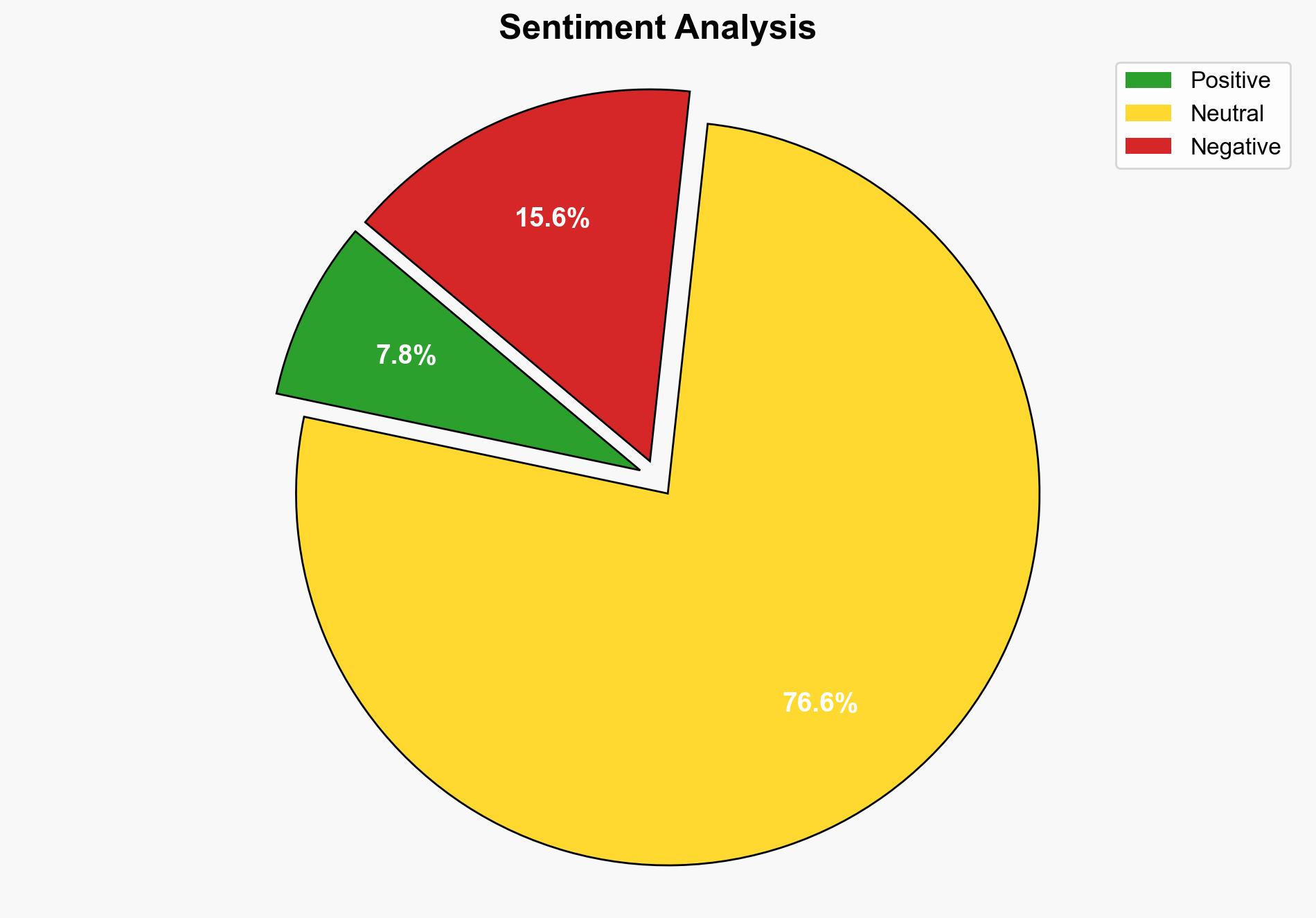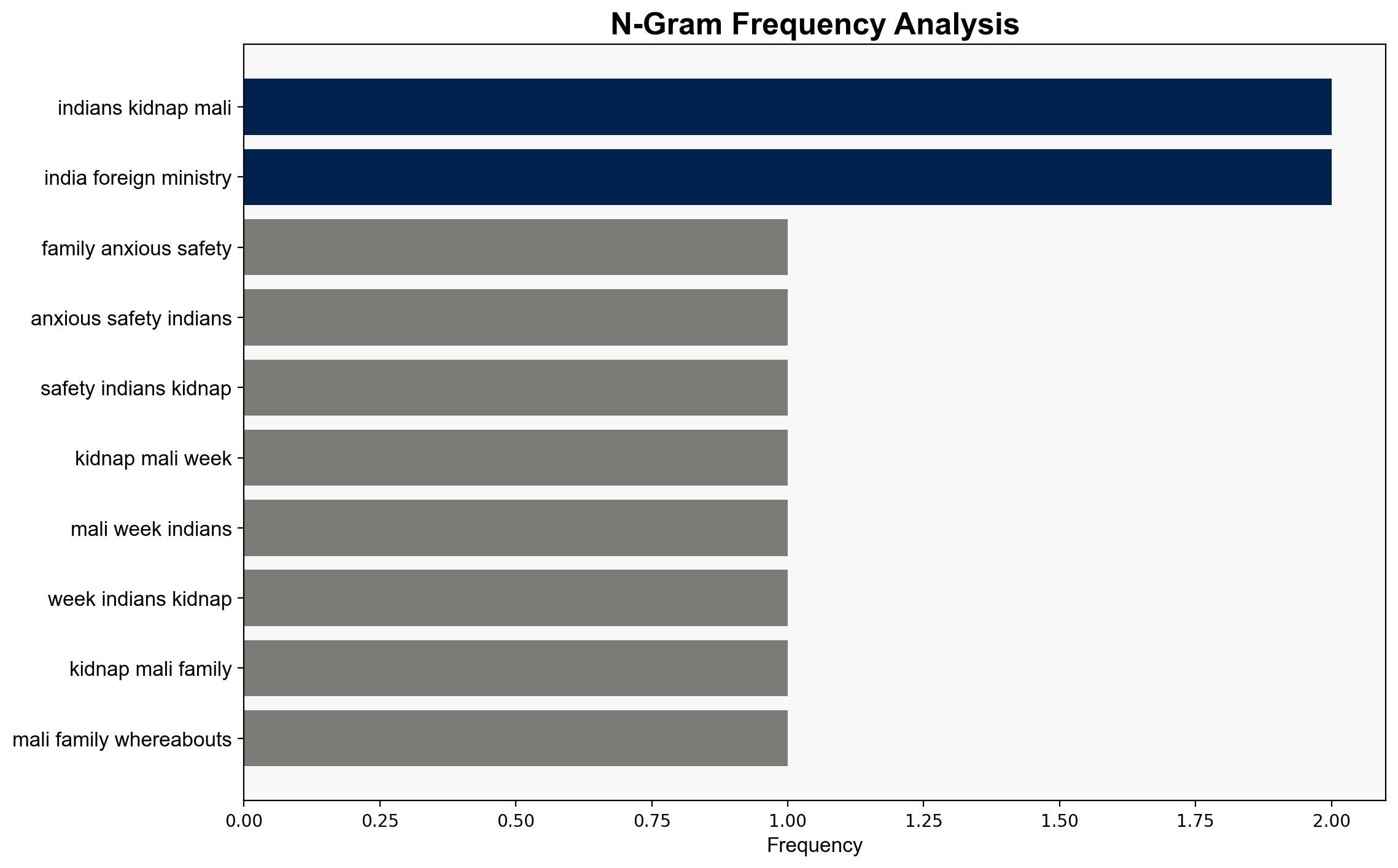Families anxious over safety of Indians kidnapped in Mali – BBC News
Published on: 2025-07-09
Intelligence Report: Families anxious over safety of Indians kidnapped in Mali – BBC News
1. BLUF (Bottom Line Up Front)
The kidnapping of Indian nationals in Mali highlights ongoing security challenges in the region, exacerbated by the presence of extremist groups linked to Al-Qaeda. The incident underscores the need for enhanced diplomatic engagement and security measures to ensure the safety of foreign nationals. Immediate actions are recommended to facilitate the safe return of the kidnapped individuals and to strengthen protective measures for Indian citizens in high-risk areas.
2. Detailed Analysis
The following structured analytic techniques have been applied to ensure methodological consistency:
Causal Layered Analysis (CLA)
– **Surface Events**: The kidnapping incident is part of a broader pattern of abductions and attacks in Mali, often targeting foreign nationals and linked to extremist activities.
– **Systemic Structures**: Weak governance and limited security infrastructure in Mali contribute to the operational freedom of extremist groups.
– **Worldviews**: The perception of foreign nationals as high-value targets for ransom or political leverage by extremist groups.
– **Myths**: The narrative of foreign intervention and exploitation fuels anti-foreign sentiment, which extremist groups exploit.
Cross-Impact Simulation
– Potential destabilization in neighboring countries like Niger and Burkina Faso due to cross-border insurgency activities.
– Economic dependencies on foreign investments in Mali may be strained, affecting regional trade relations.
Scenario Generation
– **Best Case**: Successful diplomatic negotiations lead to the safe release of hostages, and increased security measures deter future incidents.
– **Worst Case**: Escalation of violence and further kidnappings destabilize the region, prompting international intervention.
– **Most Likely**: Continued sporadic attacks and kidnappings with incremental improvements in security cooperation between Mali and foreign governments.
3. Implications and Strategic Risks
The incident reveals vulnerabilities in the security environment of Mali, with potential spillover effects in the Sahel region. The presence of extremist groups poses a persistent threat to regional stability and foreign investments. The risk of further kidnappings or attacks on foreign nationals remains high, necessitating a coordinated international response.
4. Recommendations and Outlook
- Enhance diplomatic efforts to secure the release of the kidnapped individuals through negotiation and collaboration with local authorities.
- Strengthen security protocols for Indian nationals in Mali and other high-risk regions, including regular safety briefings and emergency response plans.
- Engage in regional security partnerships to address the root causes of extremism and improve intelligence-sharing mechanisms.
- Monitor developments closely to adjust diplomatic and security strategies as the situation evolves.
5. Key Individuals and Entities
– Panad Venkatramana
– Narsamma
– Naveen Patnaik
– Jaishankar
– Amaralingaeswara Rao
– Koorakula Venkateswarlu
6. Thematic Tags
national security threats, counter-terrorism, regional focus, hostage crisis, diplomatic engagement




